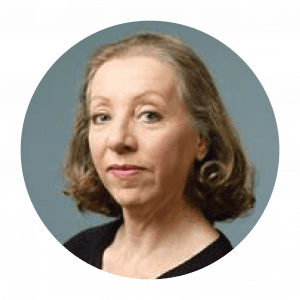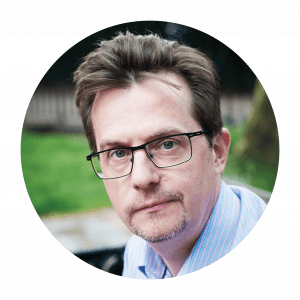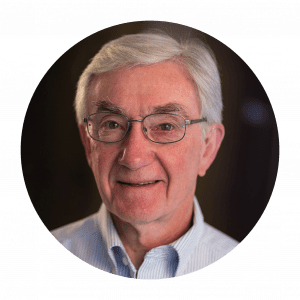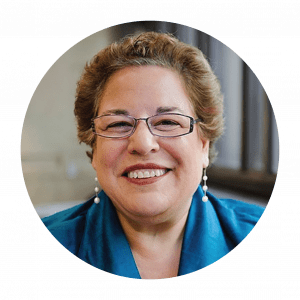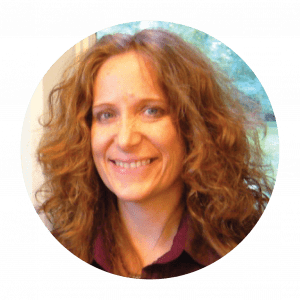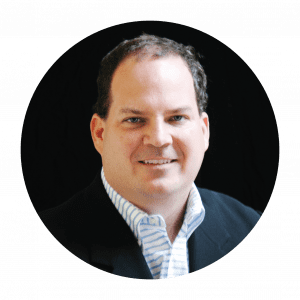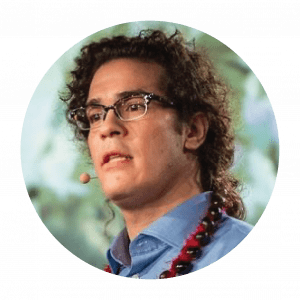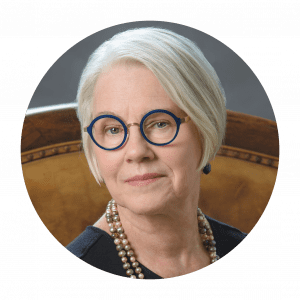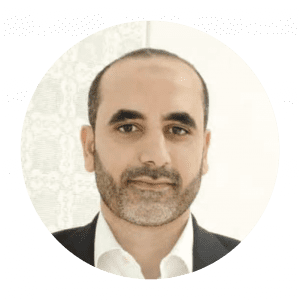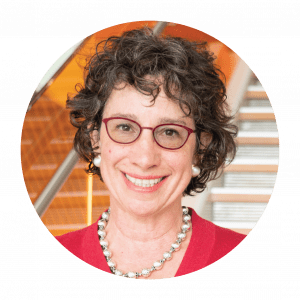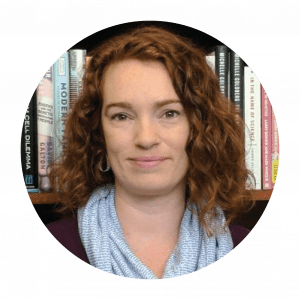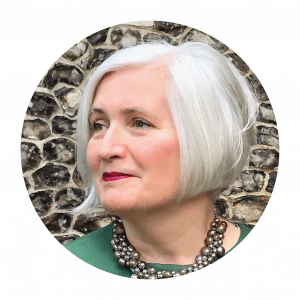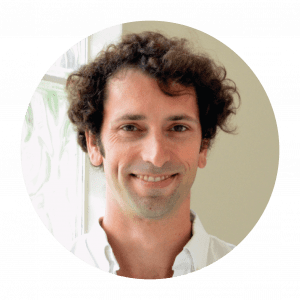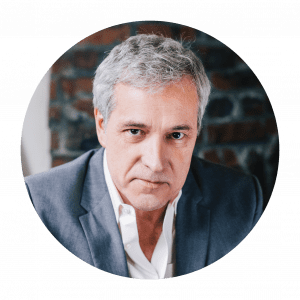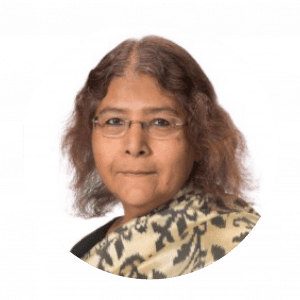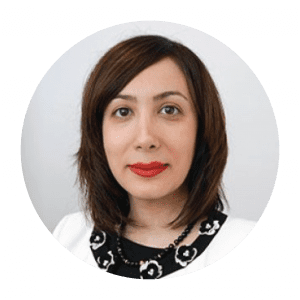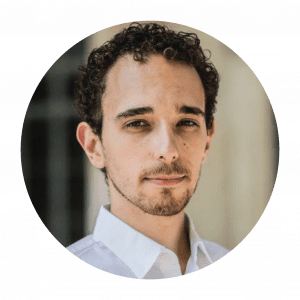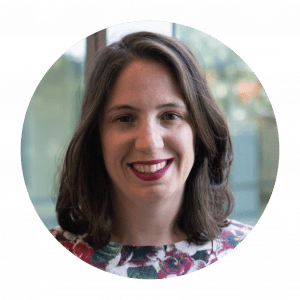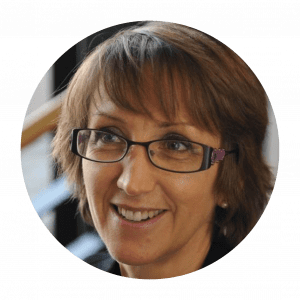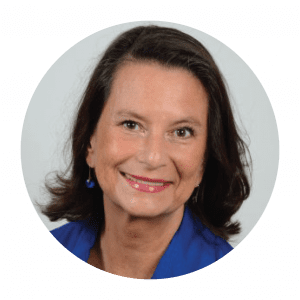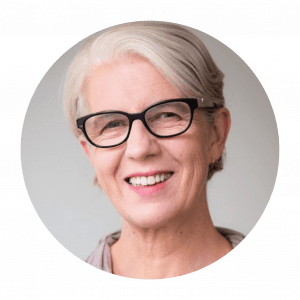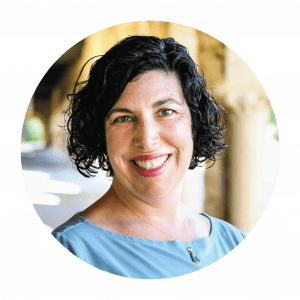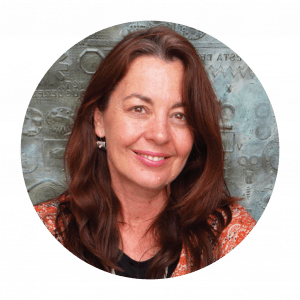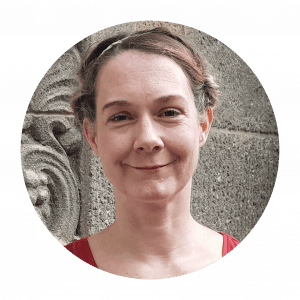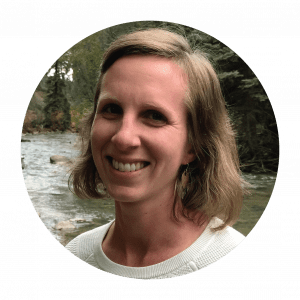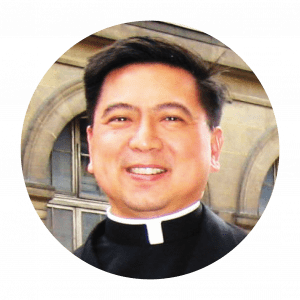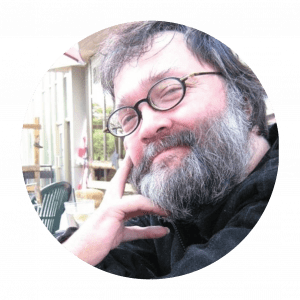Genomics
Institute

CRISPR Consensus?
Public debate and the future of genome editing in human reproduction
About the Event
On October 26th, 2019, over 20 speakers from diverse backgrounds, expertise, and countries of origin, gathered at UC Berkeley, to discuss the critical question of public participation in decision-making about heritable genome editing.
Due to campus-wide power outages, this event was moved to a smaller venue, reducing the number of local, in-person participants. Despite these hurdles, event organizers live-streamed this symposium and the recorded videos are posted below. Public participation is a core component in this vital conversation around germline editing, and we encourage viewers to use these videos as a catalyst to continue the conversation.
For a synopsis of the event, check out the symposium recap in the Berkeley Science Review.
Human Germline Editing
New genome editing technologies have the potential to profoundly affect the future of humanity. The ability to make direct genetic changes to the DNA of future children raises far-reaching ethical questions.
- Should it be done?
- For what purposes?
- With what limitations?
- Who should decide?
Scientific and technological advances are proceeding rapidly and need guidance from wider society about what technological futures we want—and do not want. Existing forums for diverse and inclusive public deliberation are limited, particularly at the international level. And significant questions remain about which decisions can be left to scientific experts and policymakers, and which demand public deliberation and judgment.
How should we as a human community guide and govern these emerging technologies? This symposium will explore the challenges—and possible paths forward—for public participation in charting the future of heritable genome editing by convening a dynamic conversation among stakeholders, members of the public, and a diverse group of experts from around the world.
Videos
These videos are meant to present a subset of diverse perspectives, to raise important questions, and to spark ongoing conversations. We hope that you use these videos to reflect on the questions presented and begin conversations within and across communities. We are interested in hearing your thoughts, so if you plan to organize a community event or share these videos in a class setting, please feel free to email igi-engagement@berkeley.edu with a recap of your experience and what was shared.
Click here to access Powerpoint files presented by panelists in Sessions 1 & 3.
Agenda
| 10:00 AM |
Welcome and Introduction to Human Germline Editing An introduction to the purpose of the event and to the basic science of human germline editing. Speakers: the Organizers |
| 10:20 AM |
Session 1: Human Germline Editing: What Is at Stake, and Who are the Stakeholders? As countries and leading bodies around the world consider how to govern human germline editing, one area of agreement is the need to include “all the stakeholders,” but there seem to be differing conceptions of who counts as a stakeholder. This session will take up the question of “what is at stake and who are the stakeholders in human germline genome editing?” Moderator
Panelists
|
| 11:30 AM | Break |
| 11:50 PM |
Session 2: Governance and its Gaps How have the agendas for debate and governance been set, and under what authority? This session will provide a picture of the current state of ethical debate and governance, internationally, with panelists from institutions that have played a key role in defining agendas for debate, regulation, and policy. Moderators
Panelists
|
| 1:00 PM |
Lunch and Roundtable Discussions (attendees must pre-register) Lunch-time conversations on topics in human germline editing, with discussions led by experts in a wide range of fields |
| 2:30 PM |
Session 3: Bringing in the Public: Platforms and Pathways for Public Engagement and Debate This session will explore opportunities for opening up the dialogue with a series of short talks showcasing mechanisms and projects for public participation in shaping ethical debate and agendas for governance in human germline editing. Moderator
Part 1: How experts or institutions focused on genetics and germline editing are engaging with stakeholders and publics Short presentations followed by a panel discussion
Part 2: How various modes of engagement are being applied toward public discourse on human germline editing Short presentations followed by a panel discussion
|
| 4:00 PM | Break |
| 4:20 PM |
Session 4: Lessons Learned and Potential Paths Forward Looking back to the day’s conversation–and more generally to the landscape of deliberation and governance of human germline genome editing—what key lessons can we learn and apply? Moderator
Panelists
|
| 5:30 PM |
Closing Comments and Adjourn Speakers: the Organizers |
Speakers
Confirmed Speakers
|
Sharon Begley |
Sharon Begley is a senior science writer for STAT, covering genetics, cancer, neuroscience, and other fields of basic biomedical research, and has been among the leading journalists covering applications of genome editing. She was previously the senior health and science correspondent at Reuters, the science columnist at the Wall Street Journal, and the science editor at Newsweek. Among her favourite awards are an honorary doctorate from the University of North Carolina and the Public Understanding of Science Award from the Exploratorium in San Francisco. |
|
Simon Burall |
Simon Burall is a Senior Associate of Involve, the UK’s leading public participation charity, on a mission to put people at the heart of decision-making. He has long and extensive experience in the fields of democratic reform, open government, public participation, stakeholder engagement, accountability and transparency, scientific and technology innovation and organisational change. He has worked at the local and national level in Africa, Asia and Europe as well as on related issues of global governance and democracy. In his current role he is leading an expansion of Involve’s work on science and technology. This Citizens and Science programme will focus on developing more effective ways for citizens to be involved in the development and application of new technological innovations with a particular focus on data and artificial intelligence. |
|
Dana Carroll |
Dana Carroll, Ph.D, is a member of the Innovative Genomics Institute, and a Distinguished Professor of Biochemistry at the University of Utah School of Medicine, where he has been on the faculty since 1975. He currently sits on the International Commission on the Clinical Use of Human Germline Genome Editing convened by the U.S. National Academy of Medicine (NAM), the U.S. National Academy of Sciences (NAS), and the Royal Society of the U.K. Carroll is considered a pioneer in the development and applications of genome editing with programmable nucleases. Carroll’s research group was the first to show that zinc-finger nucleases stimulate targeted mutagenesis and gene replacement in living cells and whole organisms. He received the Novitski Prize from the Genetics Society of America in 2012, was elected a Fellow of the American Association for the Advancement of Science in 2013, and was awarded the H.A. Sober Lectureship by the American Society for Biochemistry and Molecular Biology in 2014. Carroll is a member of the American Academy of Arts and Sciences and the U.S. National Academy of Sciences. In his role at the Innovative Genomics Institute, Dana is leading efforts to advance education, engagement, and policy around genome editing. |
|
R. Alta Charo |
Alta Charo, J.D., is the Warren P. Knowles Professor of Law and Bioethics, University of Wisconsin. She currently sits on the WHO advisory committee on “Developing Global Standards for Governance and Oversight of Human Genome Editing”, and previously co-chaired the National Academies’ Committee on Gene Editing Ethics and Policy. Charo’s work has focused on reproductive technologies, research ethics, stem cell policy, drug safety, genetic engineering, and genome editing. Her federal government employment has included the congressional Office of Technology Assessment, the U.S. Agency for International Development, and the Food and Drug Administration. Professor Charo’s advisory committee service for the federal government includes the 1994 National Institutes of Health Human Embryo Research Panel, President Clinton's National Bioethics Advisory Commission (1996-2001), and President Obama’s HHS transition team (2008-2009). Charo is a member of the U.S. National Academy of Medicine (NAM). At the U.S. National Academies, she is a member of the NAM Council and has been a member of the Board on Life Sciences, the Board on Population Health and Public Health Practice, and is, at present, a member of the Committee on Science, Technology, and Law as well as the Board on Health Sciences Policy. Charo has served on a number of study committees, including the Committee on Research Standards and Practices to Prevent Destructive Applications of Biotechnology; the Committee on Smallpox Vaccination Program Implementation; the Committee on the Future of Drug Safety; and the Committee on Mitochondrial Replacement Techniques. She also was a founding co-chair of the Forum on Regenerative Medicine, and is a 2019-20 Berggruen fellow at CASBS. |
|
Dafna Feinholz |
Dafna Feinholz has a PhD in Research Psychology (UIA Mexico) and a Master in Bioethics (Universidad Complutense, Madrid, Spain). She was the Head of the Reproductive Epidemiology Department at the Mexican National Institute of Perinatology, and Director for Research and Planning of the Women and Health Programme of the Ministry of Health (Mexico). She successively occupied the posts of Academic Coordinator of the National Commission of Human Genome at the Ministry of Health and Executive Director of the National Commission of Bioethics (NCB). As the Executive Director of the NCB, she was the main driver to define its mission described in the presidential decree, i.e. to promote a bioethical culture; to provide society and decision makers with the necessary elements to understand and tackle ethical issues. She was also involved in public awareness activities regarding sensitive issues. She was Mexico´s representative at the meetings of the Intergovernmental Bioethics Committee that drafted the Universal Declaration on Bioethics and Human Rights, which was adopted by UNESCO’s General Conference in 2005. Since September 2009, she is the Chief of UNESCO’s Bioethics and Ethics of Science Section. In this capacity, she leads different activities aiming at reinforcing capacities of Member States to manage bioethical challenges and to identify the ethical, legal and social implications of cutting-edge science, emerging technologies and their application for sustainable development, and promoting awareness raising and public debate. |
|
Micheal Flaherty |
Micheal Flaherty is a writer and film producer. In 1999, he founded Walden Media, an entertainment company designed to enlighten and inspire movie-goers while also entertaining them. Flaherty served as company President for fifteen years before starting a new production company. By that time, Walden had produced nearly two dozen movies including The Chronicles of Narnia, Charlotte's Web, Amazing Grace, and the documentary Waiting For Superman. His new company, Epiphany Story Lab, has produced several films including The Little Prince and STEP, which won the Grand Jury Award at Sundance in 2017. As a writer, Flaherty has been published several times in the Wall Street Journal and National Review. He recently finished his first screenplay that is scheduled to go into production in 2020. Flaherty recently celebrated his 20th wedding anniversary to his wife Kelly along with their three children - Christian, Eileen, and Reagan. He credits his son Christian for introducing him to CRISPR after recounting a presentation he heard in his high school biology class. |
|
Keolu Fox |
Keolu Fox, Ph.D., is an Assistant Professor of Biological Anthropology at the University of California, San Diego, and an indigenous rights activist. Fox earned his doctorate in Genome Sciences in 2016 at the University of Washington, Seattle before serving as a postdoctoral fellow at UC San Diego, where he was awarded the NIH, Institutional Research and Academic Career Development Award (2017) and the UC Chancellors’ Postdoctoral Fellowship (2018). Fox’s research program is multi-disciplinary in nature, reflecting his interdisciplinary research experience in anthropology, genomics, and computer science. His primary research focuses on questions of functionalizing genomics, which involves putting to the test theories of natural selection by editing genes and determining the function of the mutations. Using the latest gene editing (CRISPR) technologies allows him to examine and test effects of genetic variants assumed to be under natural selection, such as “thrifty genes” in Polynesians, or Neanderthal variants in human cell lines. Based on this work, he has been granted prestigious awards from Anthropological institutions including American Association for Physical Anthropology (Cobb Professional Development Grant) 2018 and named National Geographic Emerging Explorer (selected as one of fourteen ‘world-changers’). Fox connects biological anthropology with other subfields to address the relationship of genomics to society, the relationship of indigenous communities to science, questions of human health from a holistic biocultural perspective, and paleogenetics as a complement to archeological science. |
|
Rosemarie Garland-Thomson |
Rosemarie Garland-Thomson is a disability justice and culture thought leader, bioethicist, teacher, and humanities scholar. Her 2016 editorial, “Becoming Disabled,” was the inaugural article in the ongoing weekly series in the New York Times about disability by people living with disabilities. She is a professor of English and bioethics at Emory University, where she teaches disability studies, bioethics, American literature and culture, and feminist theory. Her work develops the field of critical disability studies and the health humanities to bring forward disability culture, access, and justice to a broad range of institutions and communities. She is co-editor of About Us: Essays from the New York Times about Disability by People with Disabilities and the author of Staring: How We Look and several other books. Her current project is How to Be Disabled: Shaping the Future for Everyone. |
|
Mohammed Ghaly |
Mohammed Ghaly, Ph.D., is Professor of Islam and Biomedical Ethics at the Research Center for Islamic Legislation & Ethics (CILE), College of Islamic Studies at Hamad Bin Khalifa University in Doha, Qatar. Ghaly's work focuses on the intersection of Islamic Ethics and biomedical sciences, and he has written and presented on the ethics of human germline editing. He is the Editor-in-chief of the Journal of Islamic Ethics (published by Brill). Since 2011, Ghaly has been a faculty member at the Erasmus Mundus Program; the European Master of Bioethics, jointly organized by a number of European universities. Ghaly has lectured on Islamic bioethics at many universities worldwide including Imperial College London, Oxford University, University of Oslo, University of Chicago and Georgetown University. During the academic year 2014-2015, he was Visiting Researcher of the Kennedy Institute of Ethics at Georgetown University, USA. In 2017-2018, he was a Visiting Scholar of the School of Anthropology and Museum Ethnology at the University of Oxford. Besides his book Islam and Disability: Perspectives in Theology and Jurisprudence (Routledge, 2010) and the edited volume Islamic Perspectives on the Principles of Biomedical Ethics (Imperial College & World Scientific, 2016), Ghaly is the single author of about thirty peer-reviewed publications and serves on the editorial board of a number of academic journals. He is also the Lead Principal Investigator (LPI) and research consultant of a number of funded research projects. |
|
Jodi Halpern |
Jodi Halpern, M.D., Ph.D, is a Professor of Bioethics and Medical Humanities in the UC Berkeley School of Public Health and Joint Medical Program. She is an Innovative Genomics Institute investigator, and the co-founder and co-lead of the Berkeley Group for the Ethics and Regulation of Innovative Technologies. Her work brings together psychiatry, philosophy, affective forecasting, and decision science. Halpern has been an invited speaker on the ethics of human germline editing at the World Economic Forum and has published work on the governance of germline editing and the need for a Human Rights Impact Assessment. |
|
Katie Hasson |
Katie Hasson, Ph.D, is the Program Director on Genetic Justice at the Center for Genetics and Society. Her writing on human genetic and reproductive technologies has been published in The Guardian, OpenGlobalRights, Zócalo Public Square, Social Science and Medicine, and Gender & Society. Previously, she was Assistant Professor of Sociology and Gender Studies at the University of Southern California. |
|
Henrietta Hopkins |
Henrietta Hopkins is the Director of Insight & Innovation for Hopkins Van Mil, an organization specializing in facilitating engagement so that voices are heard, learning is shared and understanding achieved. In 2017 the Royal Society of the UK commissioned Hopkins Van Mil to conduct research into public and stakeholder views on uses for genetic technologies, including germline genome editing. Henrietta is an expert Lead Facilitator and Qualitative Research Designer with a particular interest in bringing creativity to citizens’ and stakeholder engagement. She works closely with academics, specialists and policy makers and shapers to enable the sensitive, evidence based exploration of emotionally challenging and technologically complex issues. |
|
J. Benjamin Hurlbut |
J. Benjamin Hurlbut, Ph.D., is Associate Professor of Biology and Society in the School of Life Sciences at Arizona State University. He is a co-founder of the Global Observatory for Gene Editing and has authored work and spoken on issues of governance for human germline editing. His research lies at the intersection of STS, bioethics and political theory. Hurlbut studies the changing relationships between science, politics, and law in the governance of biomedical research and innovation, examining the interplay of science and technology with notions of democracy, religious and moral pluralism, and public reason. He is the author of Experiments in Democracy: Human Embryo Research and the Politics of Bioethics (Columbia University Press, 2017) as well as numerous articles and book chapters. He received an A.B. in Classics from Stanford University and a Ph.D. in the History of Science from Harvard University. He was a postdoctoral fellow in the program on Science, Technology and Society at the Harvard Kennedy School. |
|
William B. Hurlbut |
William B. Hurlbut, M.D., is a physician and Adjunct Professor in the Department of Neurobiology at Stanford University Medical Center. His primary areas of interest involve the ethical issues associated with advancing biomedical technology, the biological basis of moral awareness, and studies in the integration of theology and philosophy of biology. He has worked with NASA on projects in astrobiology and on Chemical and Biological Warfare at Stanford’s Center for International Security and Cooperation. He has co-chaired three interdisciplinary faculty projects at Stanford: “Becoming Human: The Evolutionary Origins of Spiritual, Religious and Moral Awareness,” “Brain Mind and Emergence,” and “The Boundaries of Humanity: Human, Animals, and Machines in the Age of Biotechnology.” In addition, he is Co-leader, with Professor Jennifer Doudna, of “The challenge and opportunity of gene editing: a project for reflection, deliberation and education.” From 2002-2009 Dr. Hurlbut served on the President's Council on Bioethics. |
|
Sheila Jasanoff |
Sheila Jasanoff is Pforzheimer Professor of Science and Technology Studies at the Harvard Kennedy School. A pioneer in her field, she has authored more than 120 articles and chapters and is author or editor of more than 15 books, including The Fifth Branch, Science at the Bar, Designs on Nature, The Ethics of Invention, and Can Science Make Sense of Life? Her work explores the role of science and technology in the law, politics, and policy of modern democracies. She founded and directs the STS Program at Harvard; previously, she was founding chair of the STS Department at Cornell. She has held distinguished visiting appointments at leading universities in Europe, Asia, Australia, and the US. Jasanoff served on the AAAS Board of Directors and as President of the Society for Social Studies of Science. She is a member of the Council on Foreign Relations. Her honors include the SSRC’s Hirschman prize, the Humboldt Foundation’s Reimar-Lüst award, a Guggenheim Fellowship, an Ehrenkreuz from the Government of Austria, and membership in the Royal Danish Academy. She holds AB, JD, and PhD degrees from Harvard, and honorary doctorates from the Universities of Twente and Liège. |
|
Samira Kiani |
Samira Kiani, M.D., is an Assistant Professor of Biological and Health Systems Engineering, at Arizona State University. She received her medical doctorate degree (M.D.) from Tehran University of Medical Sciences, and completed her postdoctoral training in the center for Synthetic Biology at Massachusetts Institute of Technology. Kiani’s work is built around her passion for applying CRISPR genome editing technology to synthetic biology -- in particular, developing safer and more controllable gene therapies. She is the recipient of the Young Faculty Award from DARPA (Defense Advanced Research Projects Agency) and several highly competitive grants from the National Institutes of Health. In addition to her research, Kiani has acted as an advisor for the MIT International Genetically Engineered Machine (iGEM) team, and in 2019 was announced as a Leshner Fellow of the American Association for the Advancement of Science, Center for Public Engagement with Science and Technology. She is collaborating with Rhumbline Media and award-winning filmmaker Cody Sheehy to produce a documentary film and communication campaign called “Code of the Wild,” as a platform for conversation between scientists and the public on the subject of genome modification. |
|
Guillaume Levrier |
Guillaume Levrier is a graduate student at Sciences Po in Paris. His work in comparative public policy is focused on the institutional challenges raised by genome editing across Europe, North America and Northeast Asia. As part of the ComIngGen project (ANR 18-CE38-0007-001), his research project aims at developing new methods to provide policy insights on life science controversies using bibliometric-enhanced corpuses, social-media data, and web scraping. He also works toward exploring the limits of current political theory in dealing with the policy issues carried by genome editing.
|
|
Billie Lianoglou |
Billie Lianoglou is a genetic counselor who specializes in prenatal care. She works closely with perinatologists to educate families on potential genetic risks for fetal abnormalities or complications. Lianoglou splits her time between working with families at the UCSF Fetal Treatment Center and supporting the research of genetic specialist Dr. Mary Norton at the UCSF Center for Maternal-Fetal Precision Medicine. This research explores the value of prenatal whole exome sequencing, a technique for determining potentially useful genetic information. Lianoglou also does research, recruitment and education for a project led by fetal surgeon Dr. Tippi MacKenzie on stem cell transplantation performed in utero for an inherited condition called alpha thalassemia major, which is usually fatal for the fetus without intervention. As a part of this project, Lianoglou manages the international registry of patients found to have a prenatal diagnosis with the condition. Lianoglou earned a master’s degree in genetic counseling from Icahn School of Medicine at Mount Sinai. She is a member of the National Society of Genetic Counselors and American College of Medical Genetics and Genomics.
|
|
Laurence Lwoff |
Laurence Lwoff, Ph.D., is the Head of Bioethics Unit (DGI - Human Rights Directorate) and Secretary of the Committee on Bioethics (DH-BIO), intergovernmental committee in charge of the activities on the protection of human rights in the biomedical field, at the Council of Europe. She holds a MSc. in reproductive physiology from the University of Paris VI – Jussieu (France), a degree in agronomy from the Institut National Agronomique Paris-Grignon (France) in 1986, and received her PhD in molecular biology in 1989. She joined the Council of Europe in 1991, where she was entrusted with the responsibilities of the Secretariat of the Conventions concerning the use of animals in agriculture and science, in the Directorate of Legal Affairs. In 1999, her responsibilities were extended to biotechnology. She was the Secretary of the International Conference of the Council of Europe on Ethical Issues Arising from the Applications of Biotechnology (Oviedo, Spain, May 1999). In 2002, she joined the Bioethics Department where she has been responsible in particular for the activities on human genetics and on the protection of the human embryo and the foetus. She was the Secretary of the Group in charge of the elaboration of the Additional Protocol to the Convention on Human Rights and Biomedicine, concerning Genetic Testing for Health Purposes. |
|
Jennifer Merchant |
Jennifer Merchant, Ph.D., is a professor of Anglo-American legal and political institutions, Université de Paris II (Panthéon-Assas). She is a leading researcher in bioethical issues of comparative public policy with expertise in North American and European policy, and politics and regulation of medical technologies involving human reproduction. She is also an expert in French law and politics on embryo research and assisted reproductive technology. Her academic interests include comparative public policy, reproduction, bioethics, civil society, science and government. Merchant is a member of the French National University Institute, the Center for the Study of Research of Administrative and Political Sciences, the Ethics Committee of the French National Institute of Health and Medical Research, and the International Network on Feminist Approaches to Bioethics (FAB) Association as well as FAB Country Representative. She has been Co-editor-in-chief of the international Tocqueville Review/Revue Tocqueville since 2001. She has been a member of the Global Ethics Observatory of UNESCO since 2005. She served on the U.S. National Academies of Sciences, Engineering, and Medicines’ human genome editing working committee (2015-2017), and was a member of the Organizing Committee for the Second Global Summit on Human Genome Editing in November 2018 in Hong Kong. In 2016, with her European colleagues, launched the ARRIGE (Association for Responsible Research and Innovation in Genome Editing). She currently serves on its board. |
|
Dianne Nicol |
Dianne Nicol, Ph.D, L.L.M., is a professor of law at the University of Tasmania in Australia and director of the Centre for Law and Genetics (CLG), which is housed in the Law Faculty. The broad theme of the CLG’s research is the regulation and governance of biotechnology, human genetics and genomics and stem cell technology. Nicol’s current research focuses primarily on the regulation and governance of personalized medicine, biobanking, genome editing and other emerging technologies, together with commercialization of biotechnology and patenting of biotechnological inventions. She has held a number of Australian Research Council (ARC) discovery grants and currently leads two ARC funded projects, one on the legal, research ethics and social issues associated with genomic data sharing and the other on the regulation of innovative health technologies. She is currently a member of the Expert Advisory Committee for the Australian Government’s Genomics Futures Mission and Chair of the Australian National Health and Medical Research Council Embryo Research Licensing Committee. She is a fellow of the Australian Academy of Law. |
|
Kelly E. Ormond |
Kelly Ormond is a Professor of Genetics and a faculty member at the Stanford Center for Biomedical Ethics at Stanford University School of Medicine. Trained as a genetic counselor, she completed a certificate in clinical medical ethics at the University of Chicago. Her work has focused on the interface between disability and genetics, and the ethics of clinically translating new genetic technologies into practice. |
|
Sonya Pemberton |
Sonya Pemberton is one of Australia’s leading factual television producers specializing in science. 2012 Emmy Award-winner and record-breaking five-time winner of the prestigious Eureka Award for Science Journalism, her passion is quality science programming. Sonya has written, directed and produced over 60 hours of broadcast documentary, her films winning over 70 international awards. She also executive-produced many award-winning factual series and one-off programs, including the 2015 global science-history series Uranium: Twisting The Dragon’s Tail for SBS, PBS and ZDF/ARTE. As a writer and director, her films include the critically acclaimed and multi-award-winning documentaries including the 2013 SBS feature-length special on immunization, Jabbed: Love, Fear and Vaccines, followed by Vaccines-Calling the Shots for PBS NOVA in the USA. The multi-award-winning film Catching Cancer was an expose of viruses causing cancer, and her film Immortal which featured the work of Nobel Laureate Elizabeth Blackburn, won the 2012 Emmy award for Outstanding Science programming. |
|
Nora Schultz |
Nora Schultz, Ph.D., is a research officer with the German Ethics Council and a freelance science writer. She has studied how fruit flies make sperm, how fish fold their spinal cord, what frogs live in Andean cloud forests, and how Germany debated the import of embryonic stem cells. Nora holds a B.A. in Biological Sciences from the University of Oxford, a degree in Journalism from the University of Dortmund and received her Ph.D. in Developmental Biology from the University of Cambridge in 2008. Since then, she has been working for the German Ethics Council in Berlin, covering topics from genetic diagnosis and stem cell research to biosecurity, brain death and big data. She coordinated the German Ethics Council’s three-year work program on genome editing in human reproduction, which culminated in the report "Intervening in the Human Germline" published in May 2019. Nora has written for New Scientist, Technology Review and Spiegel Online and continues to write for the German neuroscience website dasgehirn.info whenever her free time allows. |
|
Julie Shapiro |
Julie Shapiro is Senior Policy Director, and Director, Natural Resources Program & Emerging Technologies Program at Keystone Policy Center. She has 16 years of experience as a facilitator, mediator, and educator. Julie directs the emerging technologies and natural resources programs at Keystone Policy Center, where she creates, facilitates, and sustains strategic partnerships and collaborations, enabling common understanding and forging shared solutions to complex problems. Julie works with diverse government, business, academic, and NGO leaders to reach common higher ground on challenging natural resource and societal issues, helping to move stakeholders from contention to collaboration. Substantive focus areas include gene editing and other emerging technologies in agriculture, conservation and health; sustainable agriculture production; pollinator health; and natural resource management including water resources, biodiversity, oil and gas development, and recreation. Julie has designed and facilitated stakeholder dialogues, public engagement processes, strategic planning processes, and summits on international, national, regional, state, and local scales. Julie directs CRISPRcon: Conversations on Science, Society and the Future of Gene Editing, a series of international conversations on societal considerations for gene editing applications in human health, agriculture, and conservation. Julie holds a master’s degree in environmental studies from the University of Colorado at Boulder and bachelor’s degrees in geosciences and English from Williams College. |
|
Fr. Joseph Tham |
Fr. S. Joseph Tham, M.D., Ph.D., is a Catholic priest, physician, bioethicist, and theologian. He is a Professor in the School of Bioethics, Regina Apostolorum Pontifical University, and a fellow of the UNESCO Chair in Bioethics and Human Rights. Fr. Tham was born in Hong Kong and immigrated to Canada at the age of 15. At the University of Toronto, he first majored in mathematical sciences and then graduated from medical school. After several years as a family physician, he entered the seminary of the Legionaries of Christ and was ordained a priest in 2004. As part of this preparation, he obtained degrees in philosophy and theology at Rome’s Regina Apostolorum Pontifical University, where he also completed his post-graduate studies in bioethics. He successfully defended his doctoral dissertation with high honours on “The Secularization of Bioethics — A Critical History.” He is former dean of the School of Bioethics in Regina Apostolorum where he presently teaches bioethics. He is the author and editor of numerous articles and books, including The Missing Cornerstone (2004), The Secularization of Bioethics (2007), Bioetica al Futuro [Bioethics of the Future] (2010), Religious Perspectives on Human Vulnerability in Bioethics (2014), Religious Perspectives on Bioethics and Human Rights (2017), Sexuality, Gender and Education (2018), Religious Perspectives on Social Responsibility in Health (2018), and Interreligious Perspectives on Mind, Genes and the Self (2018). |
|
Gregor Wolbring
|
Gregor Wolbring, Ph.D. is a tenured Associate Professor in the Department of Community Health Sciences, Stream of Community Rehabilitation and Disability Studies, Cumming School of Medicine at the University of Calgary, Alberta in Canada. He is an ability studies scholar, biochemist, and activist who writes, researches and speaks around the world. One focus of his work is on the social, ethical, legal, economic, environmental, cultural and governance issues of new and emerging technologies (e.g. genetics, nanotechnology, neurotechnologies and artificial intelligence/machine learning); particularly their impact on marginalized populations, the role narratives of health professionals, and the issue of knowledge production. Wolbring is a member of the Institute for Technology Assessment and Systems Analysis (ITAS), Karlsruhe, Germany; Visiting Professor of Ability Expectation and Ableism Studies, American University of Sovereign Nations (AUSN) USA; and Fellow at the Institute for Science, Policy and Society, University of Ottawa, Canada. He was the President of the Canadian Disability Studies Association and a board member of the Society for Disability Studies (USA). In 2017, he was awarded the Tanis Doe award of the Canadian Disability Studies Association; in 2013 the Queen Elizabeth II Diamond Jubilee Medal of the Canadian government for his research impact on the community; five teaching awards at the University of Calgary; and in 1998, the Council of Canadians with Disabilities, National Award. |
Organizers & Sponsors
This event is organized by the Innovative Genomics Institute (IGI) at the University of California, Berkeley, the Initiative on Science, Technology and Human Identity at Arizona State University, and the Keystone Policy Center. It is co-sponsored by the IGI at UC Berkeley, and the Initiative on Science, Technology and Human Identity at Arizona State University and is made possible through the generous support of the John Templeton Foundation.

ADA Accessibility
Stanley Hall is an ADA accessible venue on campus. More information about entryways and restrooms can be found here. Live streaming for remote viewers will be live captioned.
We strive to host inclusive, accessible events that enable all individuals to engage fully. To request an accommodation or for inquiries about accessibility, please contact Kristy Nordahl, knordahl@berkeley.edu, 510-664-7110.
